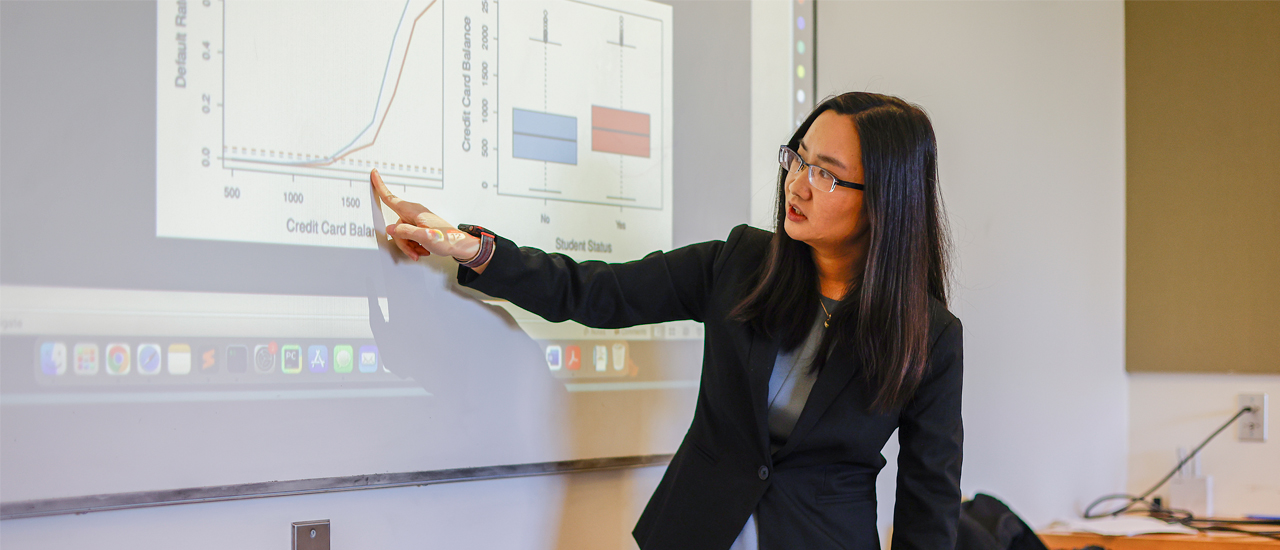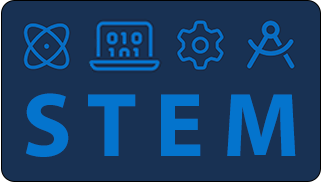Data Science
With the exponential growth of big data, companies across various industries are looking for data scientists to inform data-driven ideas and methods for growth. Data scientists extract knowledge from data using a combination of skills from computing, mathematics and statistics, to drive organizational decision-making. At Seton Hall, the Department of Mathematics and Computer Science is training the next generation of data scientists to address this tremendous need.
A 30-credit, hybrid program, the STEM-designated M.S. in Data Science integrates skills from computer science, mathematics, statistics and applications to leverage the knowledge embedded in data into its curriculum. The data science programs are designed for students who have completed undergraduate degrees in science, mathematics, computer science, engineering, statistics or economics. Students take courses both on-campus and online.
Students learn cutting-edge techniques in data science courses to analyze data from data mining, machine learning, data visualization and cloud computing. Our data science master's program provides a rigorous curriculum that trains in practical skills needed for internships and full-time employment as data scientists.
Data Science students have the opportunity to work on real world projects and internships, made possible through the program's active relationships with such leading companies as Barnes and Noble, Google, Facebook, Celgene, Comcast, Chase and Amazon.
The data science programs are a part of the University's Academy of Applied Analytics and Technology, which facilitates cross-disciplinary research and applications in various emerging areas, such as data analytics and technology.
What Can I Do With a Master's in Data Science?
With a STEM-designated Master's in Data Science, students are prepared to harness the power of big data and advanced analytics in today's digital world. Graduates can venture into a variety of sectors, taking on roles such as Data Scientist to extract actionable insights, Machine Learning Engineer to design predictive models, or Data Engineer to create robust data infrastructure. In the financial world, Quantitative Researchers can apply data-driven methodologies to forecast market trends. Transitioning to consulting, they might serve as Data Analytics Consultants, guiding firms on data-driven decision-making. Roles like Big Data Solutions Architect or Business Intelligence Analyst allow for the design of comprehensive data solutions or the visualization of data for strategic business decisions, respectively. For those eyeing leadership positions, becoming a Chief Data Officer offers the chance to steer an organization's entire data strategy. Furthermore, the STEM designation offers international students extended work opportunities in the United States, providing a tangible advantage in a globally competitive field.
Opportunities for International Students with a STEM-Designated M.S. in Data Science
By 2028, it is estimated that there will be more than a million jobs in the STEM field. In preparation, this STEM-designated program will equip you to utilize technology, data and business analytics to make effective business decisions and solve complex business problems.
The STEM designation offers an additional benefit by allowing international students to apply to extend their 12-month optional practical training (OPT) by an additional 24 months.








